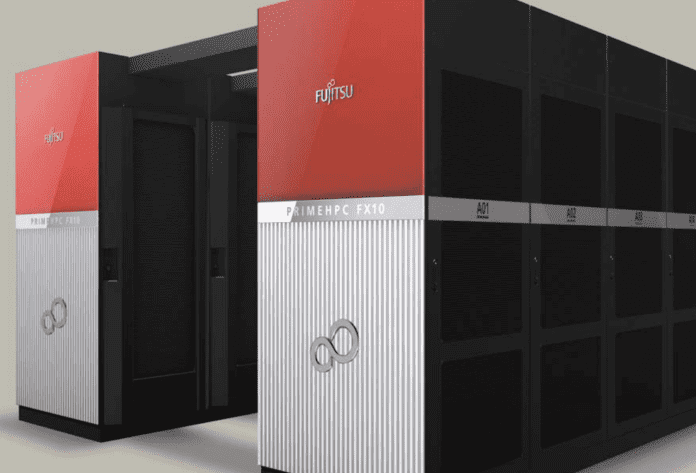The industrial city of Kawasaki, in the greater Tokyo area, has signed with Japanese IT conglomerate Fujitsu to develop a new ‘smart city’ fabric using the latest connectivity, compute, and analytics solutions. Specifically, the city has commissioned the firm to install “next-generation” 5G, AI, and supercomputing tech to spur infrastructure for the development of post-Covid healthcare, security, environmental, and working practices. At the same time, Fujitsu has said compute-hungry Industry 4.0 apps for the automotive and aircraft sectors are now good-to-go on its PRIMEHPC supercomputer.
Fujitsu hails from Kawasaki, and retains a major manufacturing and research centre in the city. It has had a deal with the city since 2014, focused on various ‘smart’ city developments. Since 2017, the pair have focused on supercomputing to mitigate damage from natural disasters, notably tsunamis. The UN’s ‘sustainable development goals’ (SDGs) in 2015, and the ongoing Covid-19 pandemic have focused their attention on sustainability.
The latest work, focused on the above-listed four project areas, will see Fujitsu use developing 5G and AI technologies to implement a ‘social digital twin’ to reproduce information in real time about the local economy, society, and environment. Fujitsu described the ‘social digital twin’ concept as “tech that digitizes society… ranging from (micro-scale) interactions [between] people, things, and events to (macro) social phenomena.”
The pair will also establish a ‘citizen-participation living lab’ to connect citizens and businesses with an eye toward a vision of a ‘future city’. The city plans to poll citizens and run workshops to get public input on the work from next month. Student internships, presumably at Fujitsu, will be available “to solve societal issues”, according to a press statement, which also included something about making Kawasaki the “happiest city”.
Its ‘happiest city’ status will come down to hitting “sustainability and contentment” targets and creating a “safe hometown” and “powerful industrial urban development”, they said. From a tech infrastructure point of view, the road to urban happiness is on a 5G data highyway, which runs truckloads of rarefied AI fueled on gallons of V8 supercomputing.
Meanwhile, Fujitsu said it has successfully run large-scale, high-definition analysis for commercial applications used in the industrial space on the Japanese supercomputer Fugaku. Test applications, run in the six months to May, included simulations for fluid dynamics. Fujitsu has validated a number of “in-demand” industrial applications on Fugaku, as well as on its own PRIMEHPC series supercomputer.
Specifically, Fujitsu cited compute-hungry industrial analytics applications for the improvement of aircraft safety, energy efficiency of automobile engines, and energy loss in driving motors in electric vehicles. Fugaku, billed as ‘the fastest supercomputer in the world’, is an exascale system at the RIKEN Center in Kobe, in Japan. It uses an A64FX microprocessor from Fujitsu. The PRIMEHPC FX10, Fujitsu’s own supercomputer, draws on the same Fugaku tech.
Industrial application vendors will offer commercial applications using the PRIMEHPC FX10 from this month. Fujistu said: “Companies in manufacturing increasingly rely on commercial applications for x86 cluster systems to perform simulations including fluid dynamics and structural analysis in product development and technical research. But demand for increasingly complex simulations presents challenges for users requiring rapid calculation results.
“The availability of these applications… on supercomputers like Fugaku and PRIMEHPC… [could allow] companies to continue using already-familiar applications and make use of their industry and process-specific expertise. To expedite the availability of these kinds of commercial applications, Fujitsu has provided a number of application vendors with development environments and testing environments for the PRIMEHPC series.”
Fujitsu said it has successfully verified the operation of eight commercial applications for improving the energy efficiency and safety of aircraft and automobiles. Fugaku was used for three of these; the PRIMEHPC system was used for the rest. Fujitsu said it will continue to validate and market commercial applications for its PRIMEHPC series computer, for manufacturers and other companies engaged in product development and technical research.

